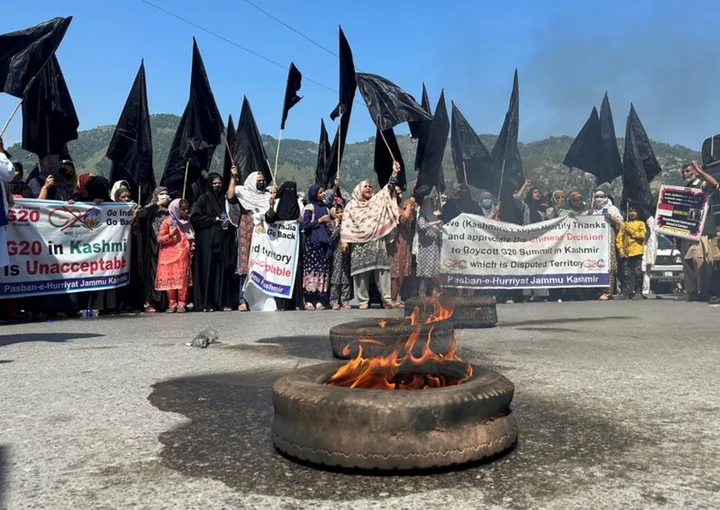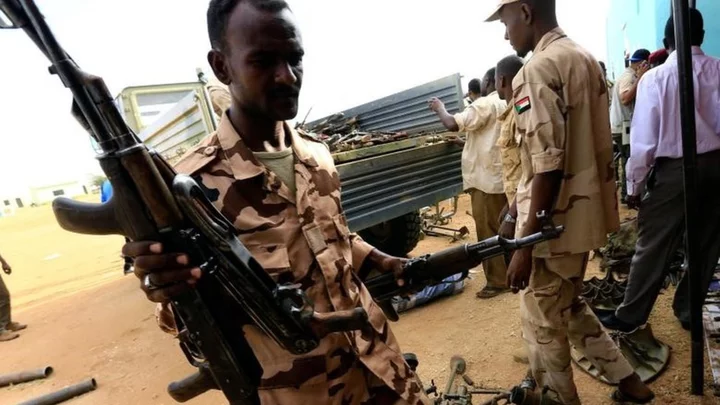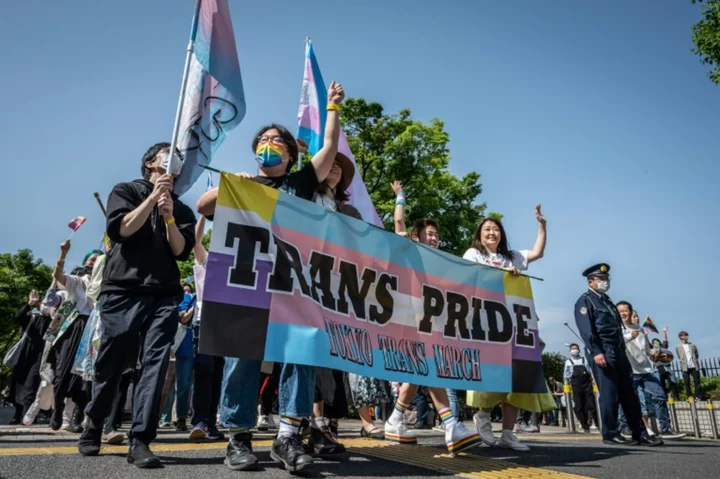By Abu Arqam Naqash
MUZAFFARABAD, Pakistan Hundreds of people rallied in Pakistan-administered Kashmir on Monday to protest arch rival India's decision to host a G20 tourism meeting in its part of the disputed Himalayan region, said a government official.
New Delhi is hosting the key conference in Kashmir's summer capital Srinagar from Monday to Wednesday, a move which Pakistan and longtime ally China have opposed.
Several protesters demonstrated in Muzaffarabad, capital of Pakistan-administered Kashmir, and other cities, chanting: "Go India go back and boycott, boycott G20 boycott!" , said the official Raja Azhar Iqbal.
Pakistan's Foreign Minister Bilawal Bhutto-Zardari visited the region and addressed Kashmir's legislative assembly on Monday. He termed the G20 gathering as illegal, and an attempt by India to seek legitimacy over its control of the disputed region.
"India is misusing its position as G20 chair," he said, and urged the world to take note of New Delhi's "gross human rights violations" since India scrapped Kashmir's special status in August 2019 and converted it into a federal territory.
The G20 tourism working group meeting is the first international event in the region since the conversion.
Indian foreign ministry didn't respond to a request for a comment.
Nuclear-armed nations, Pakistan and India have fought three wars since independence from Britain in 1947, two of them over Kashmir, which they each claim in full but control parts of.
G20 consists of 19 rich nations and the European Union. India at present holds it presidency, and is set to host its annual summit in New Delhi in September.
India hopes the meeting will help revive international tourism in the scenic Kashmir Valley which has been roiled by a violent Islamist insurgency against Indian rule since 1989, although violence levels have fallen in recent years and domestic tourism boomed.
(This story has been corrected to fix description of Kashmir's status from 'independent' to 'special' and India's action from 'annexed' to 'converted it into a federal territory' in paragraph 5, and 'annexation' to 'conversion' in paragraph 6)
(Writing by Asif Shahzad; Editing by Bernadette Baum)









